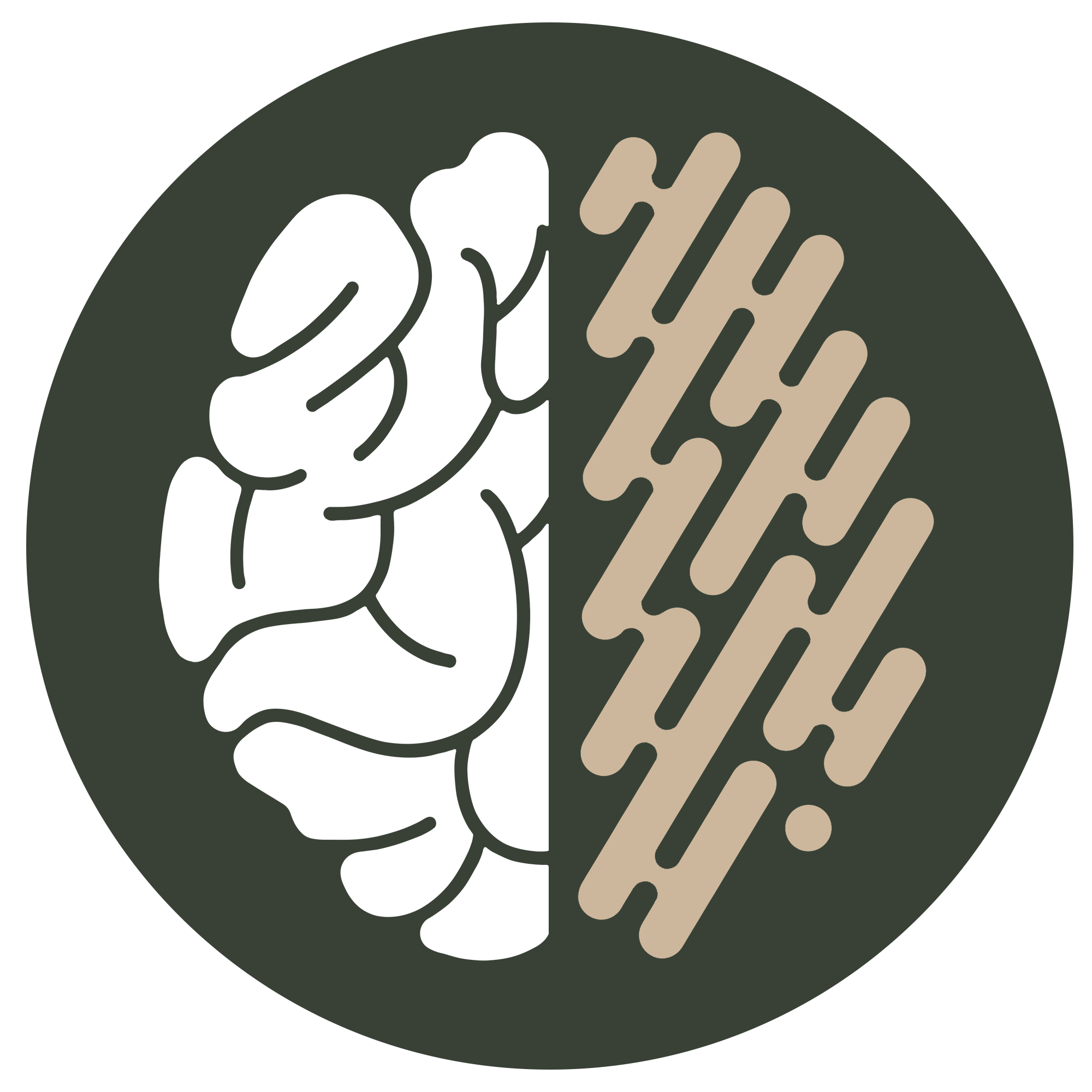Understanding Neurodivergent Burnout and Its Impact on Employees
Burnout is a growing issue in the modern workplace, affecting employees across industries. However, for neurodivergent individuals, those with conditions such as ADHD, autism, dyslexia, and dyspraxia, burnout is not just common, it can manifest in distinct ways that may go unnoticed or misunderstood. Recognising the signs of neurodivergent burnout in the workplace and taking proactive measures to create an inclusive environment is crucial.
What is Neurodivergent Burnout?
Neurodivergent burnout differs from general burnout in both its causes and its effects. For many neurodivergent individuals, the pressure to mask their traits and conform to neurotypical expectations can lead to emotional and physical exhaustion. This phenomenon, often referred to as “camouflaging” or “masking,” demands high cognitive effort and results in long-term stress. Over time, this constant battle to fit into environments not designed for them can lead to neurodivergent burnout.

According to Psychology Today, neurodivergent burnout goes beyond work stress; it often results from sustained periods of sensory overload, social interaction, and the feeling of not being understood. These elements combine to create overwhelming mental fatigue that’s distinct from the burnout experienced by neurotypical individuals. It can also trigger more severe symptoms, such as shutdowns, where the individual becomes unresponsive, or meltdowns, marked by emotional outbursts.
The Unique Challenges Neurodivergent Employees Face
Neurodivergent employees often encounter environments that aren’t structured to accommodate their needs, leading to heightened stress. Neurodivergent burnout is exacerbated when employees are forced to suppress their natural ways of working or communicating. In fast-paced workplaces, this suppression can quickly lead to physical exhaustion and mental health issues, such as anxiety and depression.
Moreover, the need for constant adaptation can make neurodivergent individuals more vulnerable to chronic burnout. The Carnegie Mellon University outlines that neurodivergent employees are more likely to experience barriers to accessing reasonable adjustments, contributing to feelings of frustration and isolation. When these challenges are left unaddressed, it becomes difficult for neurodivergent employees to sustain their energy and productivity levels, which can lead to disengagement and eventually, burnout.
4 Reasons Why Neurodivergent Employees are Burning Out
1. Environments Not Designed for Neurodivergent Minds
Traditional workplace environments can be unintentionally hostile to neurodivergent needs. What may seem like a neutral or standard working environment can cause consistent stress and cognitive fatigue for those who process the world differently.

Many neurodivergent individuals experience sensory sensitivities, executive functioning challenges, or require different types of communication and focus. Yet:
- Open-plan offices increase sensory load and distractions.
- Unstructured meetings or unclear instructions create confusion.
- “Standard” hours, expectations of eye contact, small talk, or multi-tasking drain mental energy.
The energy spent “masking” or trying to conform to these norms creates a hidden second shift and increases the risk of neurodivergent burnout in the workplace. Over time, the psychological toll is immense, often leading to withdrawal, mental health deterioration, or exiting the workplace altogether.
“Many neurodivergent employees aren’t burning out because they’re less capable – they’re burning out because they’re constantly working harder to fit into systems that weren’t built with them in mind.”
2. The Manager Confidence Gap
Managers play a pivotal role in employee wellbeing, yet few are equipped to support neurodivergent colleagues effectively.

Without training, guidance, or frameworks, managers often fall back on assumptions. This results in:
- Misinterpreting communication differences as defiance or poor performance.
- Overlooking burnout signs because they don’t match neurotypical indicators.
- Struggling to offer flexibility without clear requests, often due to fear of getting it wrong.
This gap leaves neurodivergent employees without the day-to-day support they need and contributes to an environment where burnout goes unnoticed until it’s too late.
3. Barriers to Disclosure and Asking for Help
A major contributor to neurodivergent burnout in the workplace is the fear of disclosure. In many organisations, psychological safety is limited, and employees fear being labelled, limited, or overlooked.

As a result:
- Individuals do not disclose their diagnosis or differences.
- Necessary adjustments are not made or requested.
- Employees internalise challenges and blame themselves.
The result is a toxic cycle of silent struggle, where neurodivergent individuals feel unable to speak up, leading to prolonged stress, performance dips, and mental health concerns.
Disclosure should not be a prerequisite for support. But without trust, role models, or visible frameworks, many suffer in silence.
4. Systemic Barriers That Undermine Performance
HR policies, practices, and performance frameworks are often neurotypical by design. Without review, these can unintentionally exclude neurodivergent talent.

Examples include:
- Onboarding processes that rely on social immersion rather than clarity and structure.
- Communication norms (e.g. Slack, fast replies, informal tone) that create anxiety or misinterpretation.
- Rigid absence, performance or promotion policies that punish different styles of work or communication.
Even with the best intentions, systemic gaps lead to high cognitive load, decreased productivity, and, eventually, neurodivergent burnout.
Why This Matters for Retention, Innovation, and Business Resilience
Burnout not only reduces employee performance and engagement but also increases absenteeism and turnover. When employees experience neurodivergent burnout in the workplace, it can manifest as a decrease in attention to detail, heightened anxiety, and difficulty managing workload. This can negatively affect team dynamics, customer interactions, and overall productivity.
When burnout strikes:
- Productivity and engagement drop.
- Employees disengage or leave.
- Reputational and legal risks increase.
Retention of diverse thinkers isn’t just a DE&I priority, it’s a business imperative. Preventing burnout is not about offering wellbeing apps or yoga classes; it’s about designing environments where neurodivergent employees can thrive.
According to the British Association for Counselling and Psychotherapy (BACP), neurodivergent burnout often goes unrecognised because traditional signs of burnout, such as feeling overwhelmed or stressed, may present differently. Therefore, training leaders and HR on how to spot neurodivergent burnout and how to support employees who are struggling is vital.
A Strategic Approach: How NeuroBridge® Can Help
At NeuroBridge, we don’t believe in one-size-fits-all solutions. Our neurodiversity support system is designed to tackle each of the issues above by transforming workplace cultures, systems and leadership confidence.
Here’s how it works:

Workplace Audits
We identify environmental and policy barriers that contribute to neurodivergent burnout and provide tailored recommendations.

Manager and Leader Training
We equip your people managers with the understanding, language, and tools needed to confidently support neurodivergent employees.

Disclosure Frameworks
We support your organisation to build safer, more transparent pathways for disclosure and conversation.

Inclusive Policy Development
We help redesign HR systems with neuroinclusion at the core, reducing friction and increasing equity.

Strategic Support
From retention strategy to innovation culture, we position neurodiversity as a business asset, not a compliance box.
Burnout among neurodivergent employees is not an individual failing – it’s a structural one.
HR leaders have the opportunity to drive meaningful, strategic change that improves wellbeing, boosts innovation, and secures long-term talent retention.
Let’s move from reactive policies to proactive design. NeuroBridge® is here to help you make that shift.





